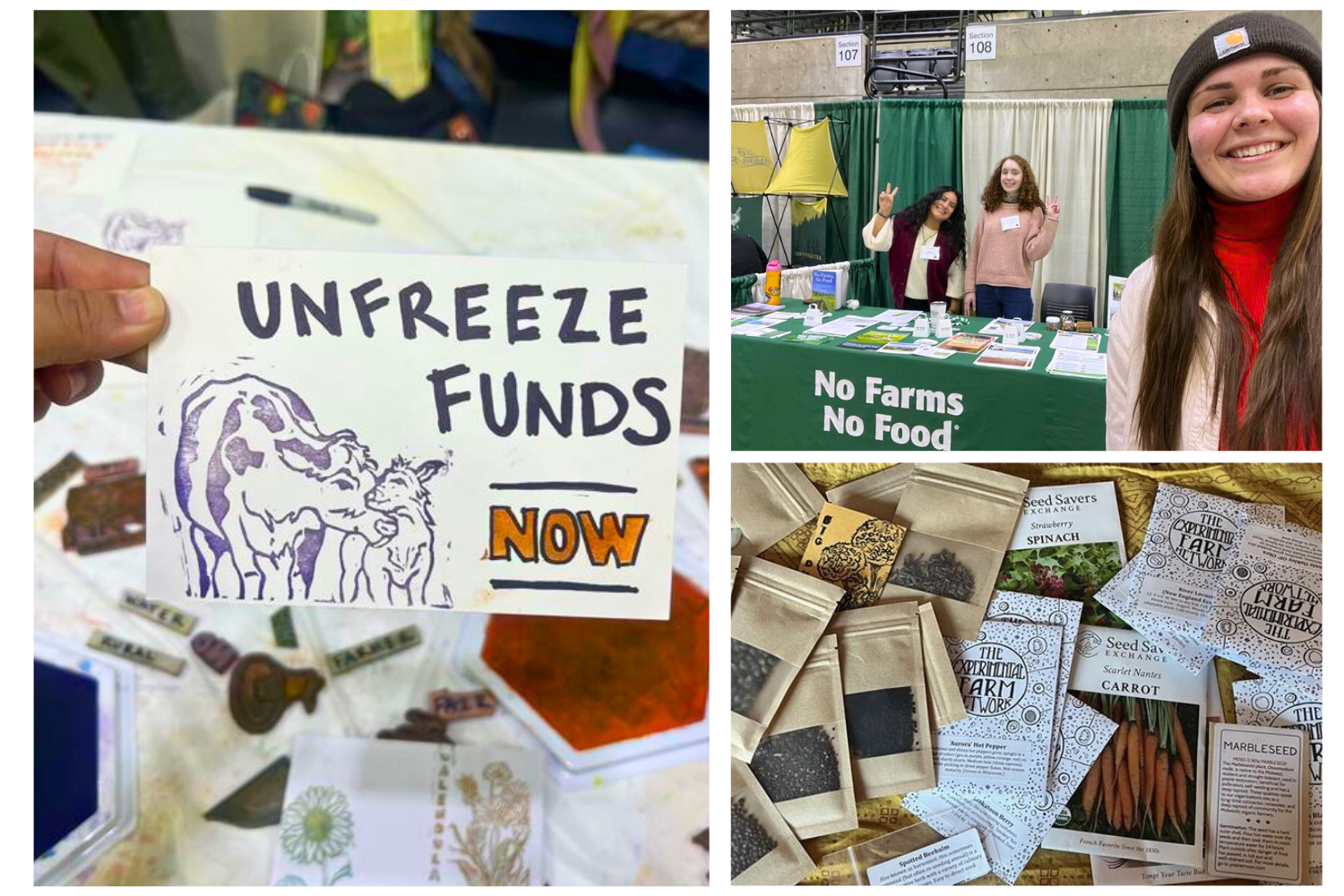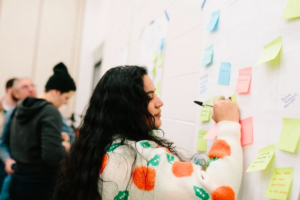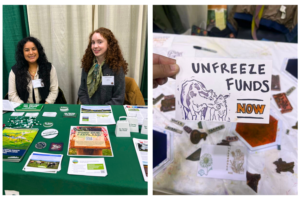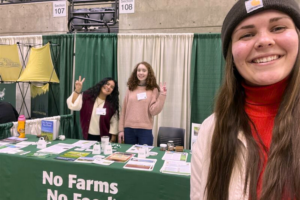Embracing Slowness: A Long-Term Commitment to the Vision of Sustainable Agriculture

On the Midwest team, we are spread across communities in cities, suburbs, and rural places. Despite a common theory that fast-paced living is reserved for cities, we’re feeling an increasing undertone that encourages a faster pace of living in general, everywhere. Faster results, quicker responses, instant reactions —ultimately leading to impatience.
Of course, there are places where fast-paced efficiency and innovations have improved our lives. Thank goodness we don’t have to walk across the country to visit our loved ones! However, maybe there is another approach to the acronym ASAP. Slowness is needed to understand the process of what is being created and that’s how you build longevity and ultimately sustainability. What if, instead, it was as slow as possible? Meaning, slowing down strategically to ensure sustainability.
Below, our teammates Rachel, Floréal, and Marlee reflect on their experiences from the recent Marbleseed Organic Conference in February 2025 and the topic of embracing slowness as a strategy to commit to a larger vision of a sustainable future.

The Wisdom of Slowness
Reflections from Rachel Lechuga
During my time at the Marbleseed Conference, I had the pleasure of speaking with folks from all over the agriculture sector. Something I noticed in my time there was that many folks have a deep commitment to their long-term vision for sustainable agriculture. Inherently, any long-term vision must incorporate an element of slowness and of longevity.
These visions included better policies for sustainable ag futures, visions of improved land stewardship, visions of inclusivity in agriculture, visions to feed their communities, and more. What connected these folks is that they all have a similar North star. That North star is their commitment to the future of sustainable agriculture.
Of course, with great vision, there is action. I learned from several organizations that are advocating on behalf of improved policies for farmers, organizations working to support farmers to expand their operations, farmers leading the way to share resources and knowledge of support.
My time at Marbleseed illuminated that there is much to learn about the wisdom of slowness. I learned that there is a craft and art to the commitment of sustainability. Something that specifically the agriculture community can teach us.
 Finding Connection and Creativity
Finding Connection and Creativity
Reflections from Floréal Crubaugh
As a Marbleseed first timer, I was struck by the overwhelming expression of creativity, community, and commitment to agriculture within a tumultuous and uncertain landscape. Encountering people who traveled from all over the country and world to commune and share hope, fears, knowledge, stories, and practice was a needed balm.
New ideas and connections were not stifled by the undercurrent of uncertainty. Instead, people stopped by American Farmland Trust’s booth to tell us about grassroots projects, their desires to protect farmland forever, and their burgeoning stewardship goals. Surrounded by artwork and sustainably sourced agricultural products, you could feel the living connection to the earth and each other—even in the middle of winter.
As I return to my desk, I feel a renewed sense of intention and perspective. Despite the bustle of attending an event with over a thousand attendees, taking a moment to put down new roots is part of the magic of Marbleseed. I intend to nurture and sustain those roots in the coming weeks, months, and years. To be sustainable in life and practice is to be slow and thoughtful, to root firmly and fast in the face of uncertainty.
 Gathering with Purpose
Gathering with Purpose
Reflections from Marlee Giacometti
As this was my second Marbleseed Conference, I was excited to reconnect with the energy and community that make this gathering so special. Each year, farmers from the northern Midwest states who are dedicated to stewarding the land for future generations gather for this annual convening to share ideas and connect with a likeminded community. Like my colleagues, I found it reassuring to return to this space amidst the uncertainties we are all collectively experiencing.
The conference agenda was packed with valuable workshops, learning circles, affinity group meetings, and lively events like barn dances, group meals, seed swaps, and more. While it’s easy to get caught in the bustling pace of the event, I noticed a sense of calm and slowness as we moved through each day of the conference. Not only is this a slower season for most farmers in attendance, but the conference itself seemed to embrace a slower rhythm—which allowed people to take their time to connect and learn with one another.
For me, the timing and presence of this gathering reaffirms the power of slowing down and the value of taking time to connect and share ideas that can propel us forward to a more resilient future. As I spoke with farmers, land stewards, policy advocates, practitioners, and eaters alike who visited the AFT table, one thing was clear: this community shares a passionate and long- standing vision for a thriving regional food system and sustainable agriculture.
As the Midwest team embraces the learnings from our conference attendance, there is always work to do to push forward the vision of a thriving, sustainable future and that includes some things that our readers can do to support our efforts! To support our work in the Midwest, consider donating to the Midwest team’s vision of supporting our land and those who feed us. Additionally, consider using your voice to support Midwest policy initiatives that protect farmland, promote sound farming practices, and keep farmers on the land. Your support today, no matter the size, contributes to the Midwest team’s capacity to continue forward sustainably and for the long-haul.

